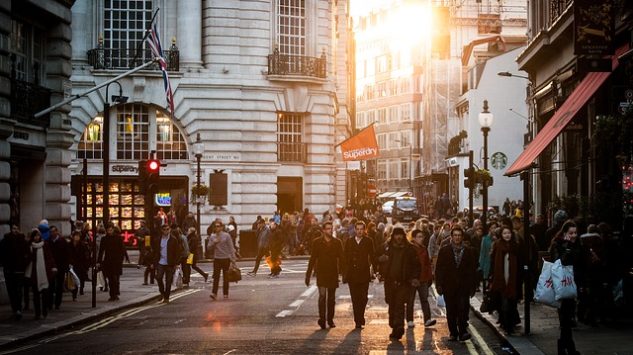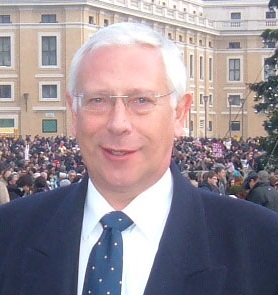Issue Briefs

Brexit Woes Continue in The UK
October 1, 2019
By Graham Bardgett
Will U.K. Prime Minister Boris Johnson pull a rabbit out of his Magician’s hat and get a new deal from the EU? Or is he determined to drive on over the cliff edge using Emergency Powers to thwart the law?
A vote of no confidence in the UK Government aimed at replacing Boris Johnson as Prime Minister is imminent, the Westminster leader of the Scottish Nationalist Party Ian Blackford said Sunday 29 September. But its success relies, he said, on all opposition parties in the UK Parliament joining forces to prevent the Prime Minister allowing the country to crash out of the EU without a deal amid warnings of catastrophic economic consequences.
Supreme Court spoke, now what?
After the UK Supreme Court, the highest court in the land with 11 judges sitting, ruled that the Prime Minister’s actions in proroguing Parliament were unlawful, MPs returned to the House with just a month to go to the scheduled Halloween Brexit. The 71 paragraph judgement, available in full on the Supreme Court website, was given by Law Lord Baroness Lady Hale.
The consequences of having taken unlawful action have still to be determined. It also leaves Boris Johnson with the dilemma of the Benn Act of Parliament which forces him to seek an extension to the Article 50 of the EU Treaty by asking the EU to postpone Brexit.
No political consensus
But there were reports that the Government was considering using the Civil Contingency Act of 2004 to give it Emergency Powers to get around this, even though the Benn Bill had received Royal Assent.
SNP leader Nicola Sturgeon hinted on Friday she might back Jeremy Corbyn becoming a “caretaker” prime minister. But the Liberal Democrats have said the Labour leader is too divisive a figure to play such a role.
Boris Johnson arrived in Manchester for the Conservative Party Conference on Sunday and was expected to tell delegates that only a Tory government will deliver on the result of the 2016 EU referendum. MPs have refused to back the prime minister’s demand for a snap general election until No Deal is taken off the table.
Another SNP MP Stewart Hosie said there was growing concern that Mr Johnson may find a way of circumventing the so-called “Benn Bill” which requires him to seek an extension to the UK’s departure date if no deal has been agreed.
No-confidence vote?
The aim of a no-confidence vote would be to install an interim prime minister who would secure a short Brexit delay and then call a general election.
“We have to do that because there is now no confidence that the prime minister will obey the law and seek the extension that Parliament voted for only a few weeks ago,” he told the BBC Today programme.
“If we are serious about the extension that is the only game in town.”
Labour leader Mr Corbyn said recent talks with opposition parties had been “productive” and the prospect of an emergency government was becoming “more likely every day”.
Asked if he was ready to be an interim prime minister he said: “Absolutely. The normal process is that when a government collapses the leader of the opposition is invited to form a minority government in order to carry through a specific and strictly limited process which would be to ensure no crash out and to prepare for a general election.”
In a separate interview on BBC Radio Scotland, Mr Hosie suggested a vote could take place as early as Monday or Tuesday.
Mr Hosie, a former SNP deputy leader, acknowledged such a plan would need the agreement of opposition parties and Tory rebels in order to succeed.
Liberal Democrat leader Jo Swinson has said an “emergency government” may be necessary but argued that MPs from all parties would not be able to unite around Mr Corbyn as a temporary leader.
She said her party had suggested other MPs as possibilities, including senior MPs who are planning to step down at the next election.
Mr Hosie said: “If another name came forward that was acceptable to everybody, a Ken Clarke or Dominic Grieve-type figure, then self-evidently that would be a good thing to do.
“But it is also self-evidently the case that the second largest party, Labour, should have the first chance to form that administration.
“If Jo Swinson and the Lib Dems are actually serious about their stopping Brexit position then they need to stop playing political games, get on board with everybody else.”
A motion of confidence allows MPs to hold a vote on whether they want the government to continue.
If the government loses the vote, MPs have 14 days to express their support for an alternative government.
If an alternative government cannot command a majority in the House of Commons in that time, a general election could be held.
Mr Hosie stressed it was vital that opposition parties had a plan in place to secure a Brexit extension before triggering a no-confidence vote.
“If that is not in place and effectively pre-agreed, then we might end up having the general election on Boris Johnson’s terms and allowing him to run down the clock and crash out without a deal.”
After the earlier Scottish Courts decision by three judges that Prime Minister Boris Johnson had “sought to stymie MPs” from scrutinizing the workings of Westminster Government, the drama has intensified every day.
Prime Minister states he chose the correct course of action
Prime Minister Johnson maintains it was right and proper to terminate the last session of Parliament to pave the way for a Queen’s Speech planned for 14 October to outline the government’s new legislative plans for the year ahead. He insisted the move had nothing to do with Brexit and his “do or die” pledge to take the UK out of the EU on 31 October, with or without a deal.
Scotland’s highest civil court found Mr Johnson had effectively misled the Queen in the sovereign’s exercise of prerogative powers.
Former Conservative Prime Ministers criticize Johnson
Former Conservative Party Prime Minister Sir John Major also hit back at Boris Johnson’s decision to suspend parliament, saying not even Disraeli or Mrs Thatcher would have done that to silence MPs debate. Sir John Major, making his speech to the Chatham House Think Tank in London, was applauded for his stand against the present Prime Minister’s actions.
Former Prime Minister David Cameron, who had called for the EU Referendum that took place over three years ago, was also not without criticisms. It became known that he had asked for Her Majesty the Queen’s help in the Scottish Referendum for Independence years earlier. The Royal Household let it be known Her Majesty was not happy about having seen to be drawn into politics.
Mr Cameron’s memoirs published by The Times and Sunday Times newspaper, said he was sorry for the mess he created in allowing a Referendum on EU membership in June 2016. He was highly critical of the current Prime Minister Boris Johnson who he said had left truth at home in the campaign. He accused Boris Johnson of only being interested in his own career and had come down on the side of Leave purely out of personal self-interest.
In the Conservative Party there are still bitter recriminations over the purging by the leadership of high ranking veteran members as hour by hour and day by day the crisis continues to unfold. It is a battle of wills between Prime Minister Boris Johnson and Parliament. MPs passed a Bill, early in September which was agreed unanimously by the House of Lords, and then got Royal Assent that Boris Johnson must seek from the EU an extension to Brexit to avoid a No Deal departure.
But in a speech at a Police College in Wakefield, with new recruits lined up behind him for the speech, he vowed he would rather be “Dead in a Ditch” than to seek a Brexit extension.
The views and opinions expressed in this issue brief are those of the author.
 |
Graham Bardgett is a Global Policy Institute Fellow. He has reported for the Los Angeles Post Examiner and Baltimore Post Examiner and is a former BBC Radio News sub-editor in London and Veteran reporter of the Northern Ireland Troubles and Peace Process. He had five years on the news desk of BBC Northern Ireland, nine years as a security reporter on the Belfast Telegraph, four years as Ireland staff reporter for the Daily Mail, and was a correspondent for the Financial Times, Daily Mirror, Sunday Express, and Irish Daily Mail. During his career he has also reported from Berlin, Luxembourg, and Rome, and carried out public affairs critical incident consultancy work in Kazakhstan and in London. He had four years with PwC international accountants and consultants; and was previously a UK Government Higher Executive Press Officer. |